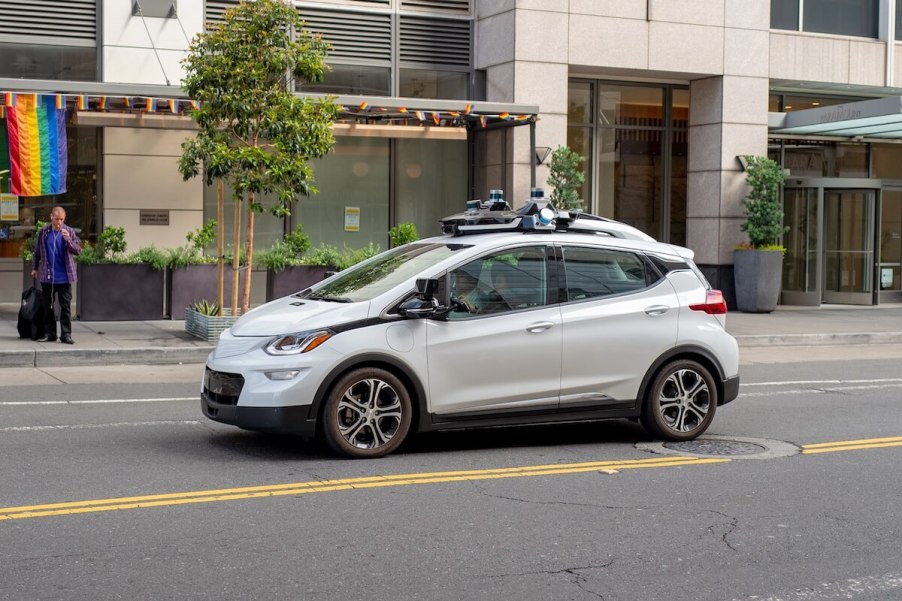
AAA Study Shows That the Fear of Self-Driving Cars Is on the Rise
Are you ready for a future filled with self-driving cars? If not, don’t worry; you’re not alone. A recent study released by AAA shows that although many drivers are interested in partially-automated vehicle technology, their interest in fully automated self-driving vehicles has dropped. In fact, many drivers fear self-driving cars.
The AAA study found that many more drivers fear self-driving cars

Considering Advanced Driver Assistance Systems (ADAS) are prevalent in new cars today, you would think that the general public would be comfortable with automated driving. ADAS include features like adaptive cruise control, lane-keeping assist, and automatic emergency braking – all of which assist the driver in keeping them safely on the road. However, many drivers are fearful when it comes to fully autonomous cars.
According to a recent study by AAA, 68% of drivers fear self-driving cars, which is up by 13% over 2022. AAA says that automakers need to be “more diligent in creating an environment that promotes the use of more advanced vehicle technologies in a secure, reliable, and educational manner.”
The Director of Automotive Research for AAA, Greg Brannon, stated: “We were not expecting such a dramatic decline in trust from previous years. Although with the number of high-profile crashes that have occurred from over-reliance on current vehicle technologies, this isn’t entirely surprising.”
Although Brannon may not directly refer to them, we can think of many crashes involving Tesla drivers relying heavily on the car’s full self-driving features over the past few years.
The names of driver-assist features may be confusing drivers

In addition to tallying up the amount of driver fear surrounding self-driving cars, AAA’s survey found that almost one in 10 drivers believe that they can buy a car that can drive itself while they sleep. No vehicle in the current market can do that, so it’s obvious that there is some confusion around what ADAS features really do.
We can’t blame the public, considering automakers use names like ProPilot Assist or Autopilot to name their cars’ suite of driver-assist features. Regarding this, the study also showed that 22% of drivers expect these driver-assist systems to have the ability to drive the car by themselves.
Do you still need to pay attention when using Advanced Driver Assist Systems?

Yes. Although Advanced Driver Assist Systems like adaptive cruise control, automatic emergency braking, and lane-keep assist can operate on their own, the driver still needs to pay attention. Other cars on the road can easily get in the way; these systems are not 100% foolproof by any means.
We have yet to see any fully automated cars hit the market yet. However, companies like Cruise GM, Lucid, and Waymo are field-testing fully automated cars and are getting close to making something production worthy. The race is still on to bring a fully automated car to the masses. So, any drivers that are still apprehensive about self-driving cars can rest easy for now



